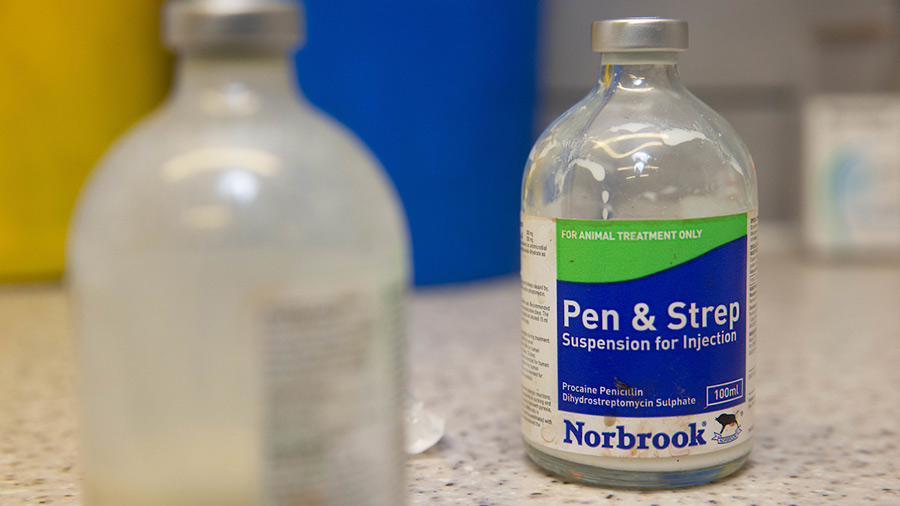Lowest ever sales of farm antibiotics recorded in UK
 © Tim Scrivener
© Tim Scrivener Sales of antibiotics for use in livestock on UK farms have more than halved in the past decade, falling to their lowest ever levels, official government figures reveal.
UK antibiotics sales for food-producing animals has reduced by 59% since 2014, according to the 2022 figures presented in the Veterinary Medicines Directorate’s Veterinary Antibiotic Resistance and Sales Surveillance (Varss) report [PDF].
Meanwhile, sales of highest priority important antibiotics (HP-CIAs) in food-producing animals remain at very low levels and these accounted for less than 0.5% of total sales in 2022.
See also: 6 things poultry producers can do to cut antibiotics further
Avoiding the unnecessary use of HP-CIAs – which are vital for human medicine – in farm animals is key to minimising antimicrobial resistance (AMR) and protecting the most critical antibiotics in human health.
The report also highlights a positive picture of decreasing resistance across several key outcome indicators.
The latest Responsible Use of Medicines in Agriculture (Ruma) Targets Task Force report, which was also published on Wednesday (1 November), shows yet another positive year in for UK agriculture in the responsible use of farm antibiotics.
Ruma chairwoman Catherine McLaughlin said: “The results being seen in both the UK-Varss report and our Ruma Targets Task Force report demonstrate that the voluntary and collaborative efforts from UK livestock sectors in the responsible use of antibiotics is achieving positive outcomes.
“The UK livestock sectors should be proud of their work to date on tackling AMR.”
Defra UK chief vet Christine Middlemiss said this year’s UK-Varss report shows how collaborative working between government and industry is effective in reducing unnecessary antibiotics use.
But she added: “It is important that we maintain and build upon this positive progress and so I encourage vets and animal owners to continue to support the UK’s 20-year vision to contain and control AMR.”
The UK government plans to launch a new five-year AMR National Action Plan next year.
